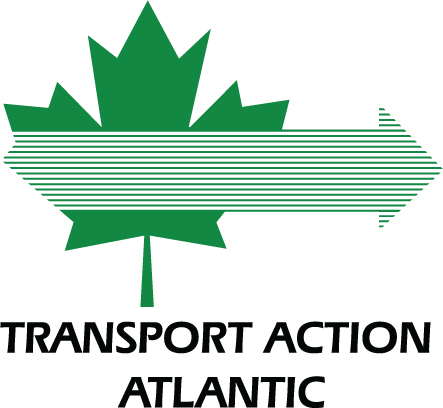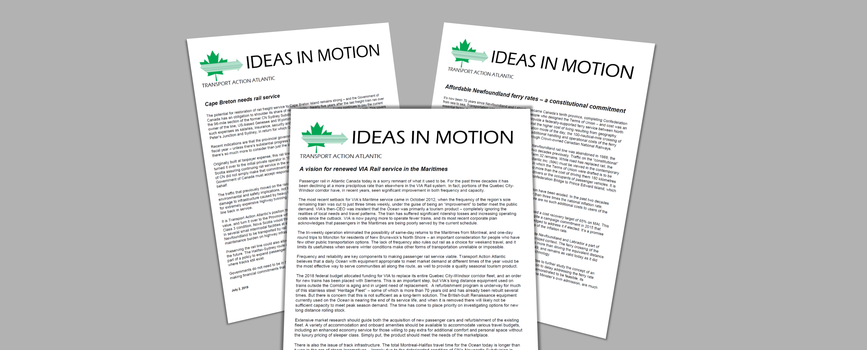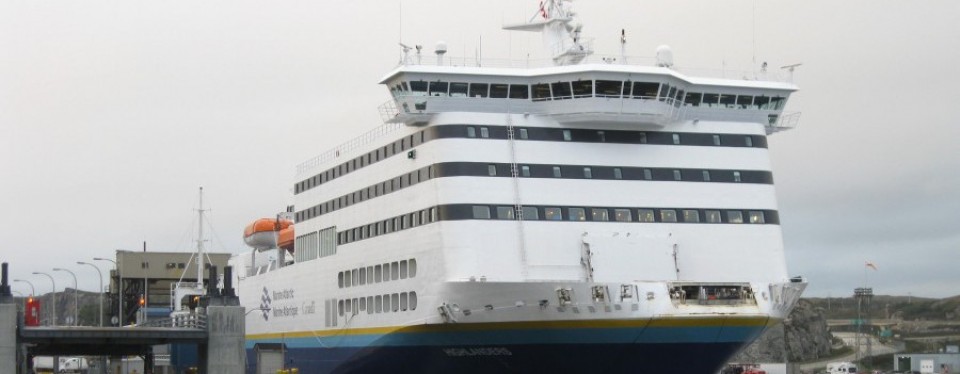Welcome back to Atlantic Transport News! We’ve been quiet through the last several months, but that doesn’t mean there hasn’t been lots going on, both in terms of regional transportation news developments and ongoing advocacy work from our members throughout the region.
As an all-volunteer organization, keeping these monthly newsletters going has always been a challenge, and through this summer we simply haven’t had the bandwidth to keep them going on a monthly basis. We’re always looking for help with submissions and assistance to keep these newsletters alive and going – please see the last item in this issue for more information, and consider if you or someone you know might be able to assist.
Here’s the run-down of what you’ll find in this “catch-up” issue:
- VIA Rail News Recap – New equipment RFI, a new president, and summer service disruptions
- New Transport Minister
- PEI Ferry – Feds to buy Norwegian vessel
- Chignecto Isthmus – squabbling over funding continues
- Halifax Transit – positive service changes coming, new fare system delayed yet again
- Transit Update – ridership increases throughout the region, new initiatives underway
- We need your help! Call for newsletter submissions and assistance
VIA RAIL NEWS RECAP – NEW EQUIPMENT RFI, A NEW PRESIDENT, AND SUMMER SERVICE DISRUPTIONS
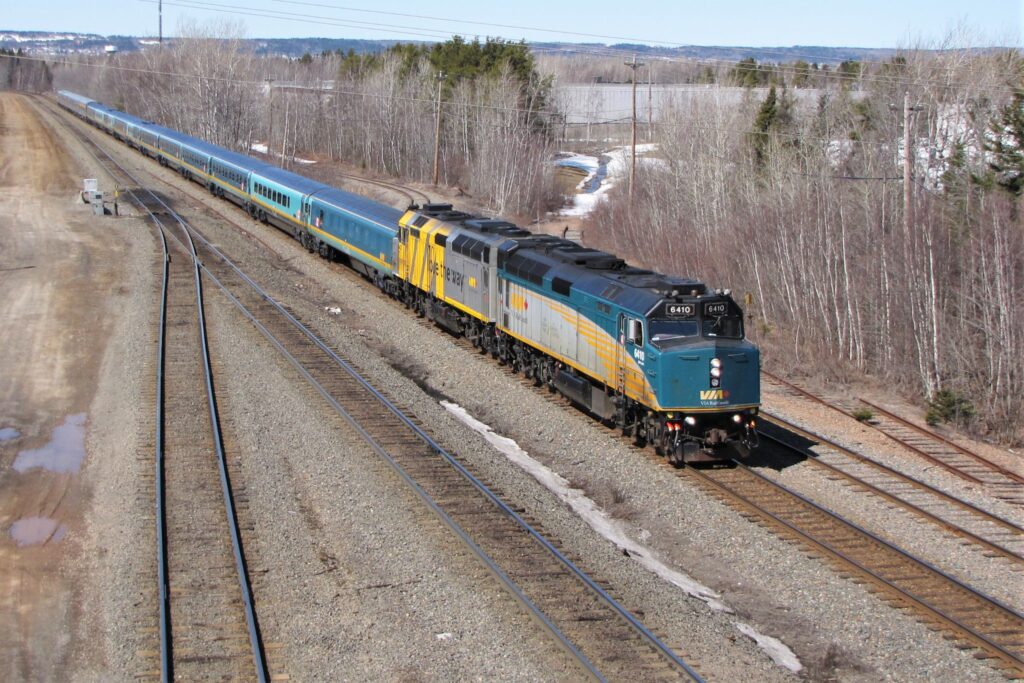
There has been a fair bit of news on the VIA Rail file over the past several months.
In May, the results of the testing of VIA’s HEP fleet finally came out, and the much maligned “buffer car” requirement was dropped. This had never had a significant impact on the Ocean’s current configuration, aside from restricting the ability to carry pets in the baggage car; but the need to use otherwise serviceable equipment as “buffers” had an impact on fleet availability.
At the end of April, VIA formally issued a Request for Expressions of Interest (RFI) to potential suppliers for its long distance fleet replacement program, marking a more formal step in this procurement. We were disappointed that the federal government did not provide funding for this much needed long distance fleet replacement in the last budget, but the fact that VIA continues to do the ground work on moving this program ahead is encouraging. Given the timeline for new
You can read more about the RFI, as well as funding that was provided for repair work on the existing HEP fleet, from Transport Action Canada here: https://www.transportaction.ca/topics/intercity-rail-and-bus/long-distance-train-fleet-replacement-rfi-issued/
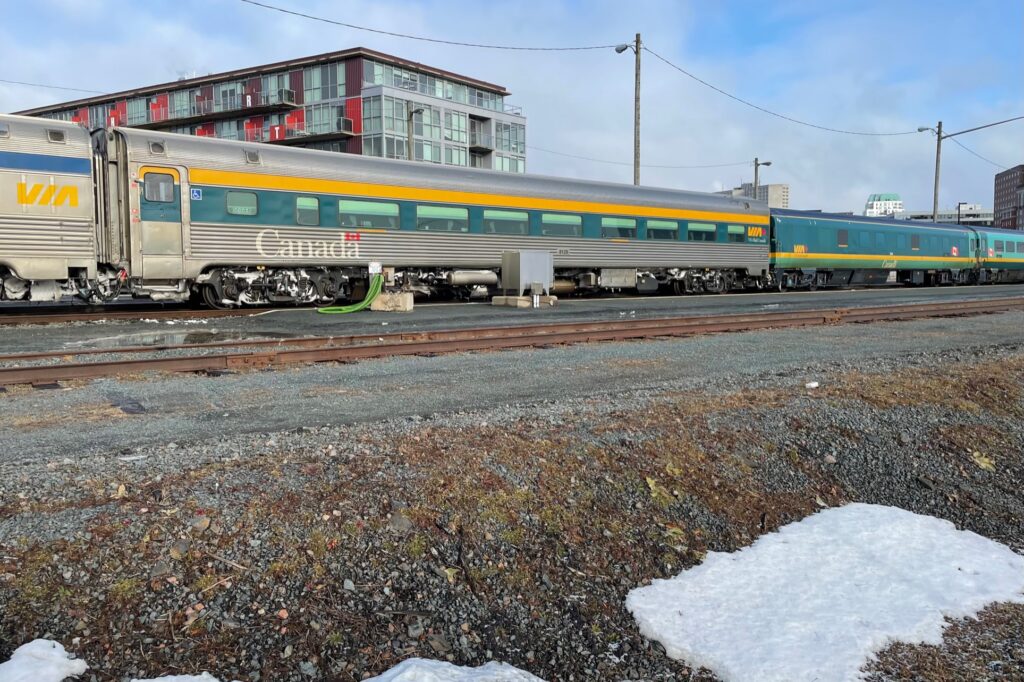
The launch of VIA’s much-anticipated and oft-delayed new reservations system continues to be pushed off. One unfortunate and unanticipated impact of this pending new system, which we discovered to great dismay earlier this year, is that all intermodal ticketing has been dropped by VIA. The new system, apparently, will not (at least initially) be able to accommodate this function, so interline ticketing with partners including Maritime Bus and the REGIM bus shuttles to Gaspé were dropped earlier this year. Even though the reservations system still hasn’t launched as of this fall, the REGIM shuttle was dropped for the entire summer. There was undoubtedly room for improvement in the intermodal partnerships, but this is a huge step backwards, and not the sort of “improvement” we hoped for with the new system.
As of June, VIA has a new president – Mario Péloquin was appointed to a 5-year term: https://www.transportaction.ca/national-news/mario-peloquin-appointed-to-lead-via-rail/

TAA is generally encouraged by Péloquin’s background and what we’ve heard about his work in the VIA c-suite so far. We extended our congratulations to him on his appointment, and have also requested a meeting when the opportunity arises. We will be sure to update if and when we have such an opportunity.
At the end of August, VIA released their second quarter report for 2023. The news was generally positive, and for the Ocean, revenues for the quarter were up 55% over the previous year, with ridership up 46.4%. This is of course in part due to the fact that the train’s frequency for much of that quarter in 2022 was still only at 2 departures each way per week, increasing back to 3/week shortly before the end of the quarter. By contrast, the train has operated at the full 3/week frequency for all of the equivalent quarter in 2023. You can read the full report here: https://media.viarail.ca/sites/default/files/publications/VIA%20Rail_Second%20Quarter%20Report%202023.pdf
One additional bit of relevant news for this region was the announcement of funding for several “heritage” stations on the VIA network, including Halifax. The exact scope of the work to be done at Halifax is not clear, though it is presumed that much of the current ongoing work to the exterior facade and interior at the station are included in this funding: https://www.transportaction.ca/national-news/via-rail-announces-80m-investment-in-heritage-stations/
Locally, the Ocean has continued to operate in its new incarnation as usual this summer. Anecdotally, ridership appears to be consistent, though capacity on the trains continues to be less than what was offered pre-2020. This summer has once again been plagued by chronic delays, as a CN track work program on the Mont-Joli sub, compounded by heat related speed restrictions, has resulted in both trains 14 and 15 experiencing delays in excess of 2 to 3 hours (and on occasion as much as 6 to 8 hours) on the regular throughout this summer. This has resulted in the loss of early connecting trains in Montreal, and frequently late evening arrivals in Halifax. These issues are no doubt made worse by the ongoing long-term slow orders along many parts of the Newcastle Subdivision, for which there is no clear remedy in sight.
Train service was disrupted a few times by extreme weather events. In July, parts of Nova Scotia received unprecedented rainfall, with a number of washouts of the rail line including a major washout between Truro and Halifax. All service on the Bedford Subdivision was curtailed for nearly a week, while CN crews worked to repair the washout. VIA service was truncated at Moncton for several trips. Though VIA provided buses for the first trains affected by this washout, passengers going beyond Moncton were left to fend for themselves on the following trips. Fortunately, Maritime Bus stepped in to offer additional buses from Moncton to help accommodate passengers, a good move on their part and something we would have hoped to see coordinated by VIA.
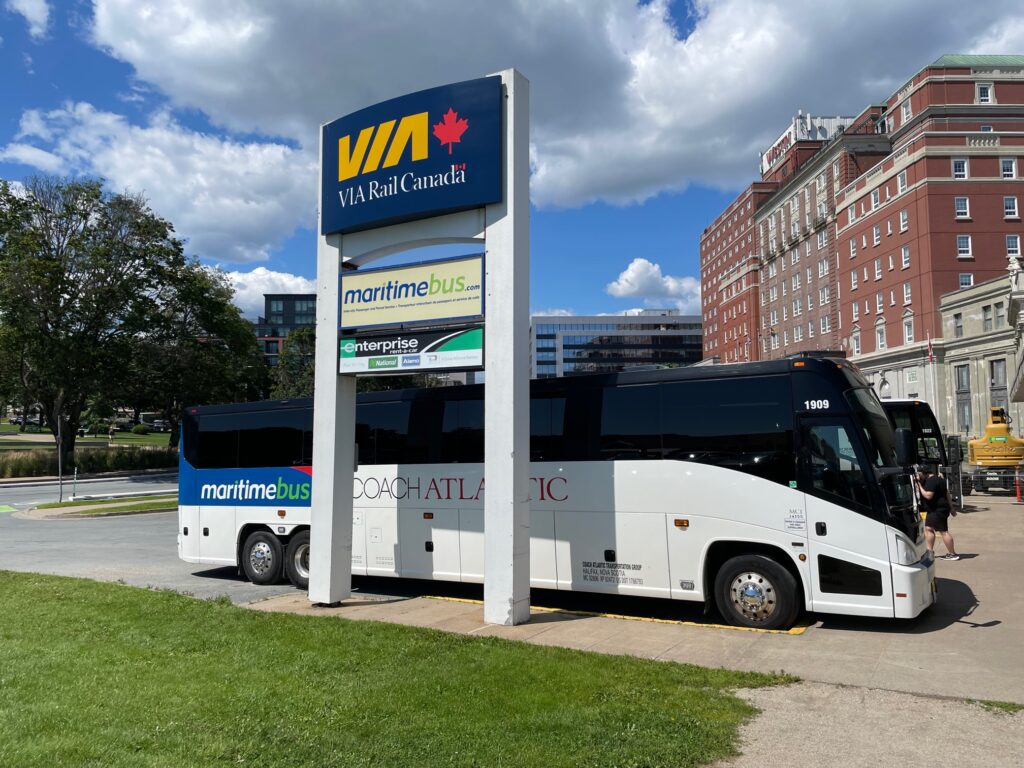
Further train cancellations took place in September, with the arrival of post-tropical storm Lee. CN suspended all train operations in the region on Saturday, September 16th. VIA initially indicated that trains 14 and 15 would be delayed by 24 hours to avoid the storm, but they then cancelled both trains instead. Passengers were refunded, but offered no alternate transportation.
Both of these service interruptions highlight a change in VIA policy that TAA finds particularly troubling: a shift to cancelling trains with no accommodation for passengers, aside from offering refunds and in some cases additional travel credits. VIA once had a reputation for going to great lengths to accommodate disrupted passengers, but their current attitude seems to have shifted to a “sorry, you’re on your own” approach. While it’s entirely understandable that trains sometimes have to be cancelled due to extraordinary circumstances, the new approach to customer service seems more likely than ever to leave affected passengers thinking twice about returning to the rails.
NEW TRANSPORT MINISTER

There was a major cabinet shuffle this summer, and the transport portfolio was among those in the mix. Pablo Rodriguez, former Minister of Canadian Heritage, has now assumed that role: https://www.transportaction.ca/national-news/pablo-rodriguez-takes-over-as-minister-of-transport/
PEI – FEDS TO PURCHASE NORWEGIAN FERRY REPLACE MV HOLIDAY ISLAND
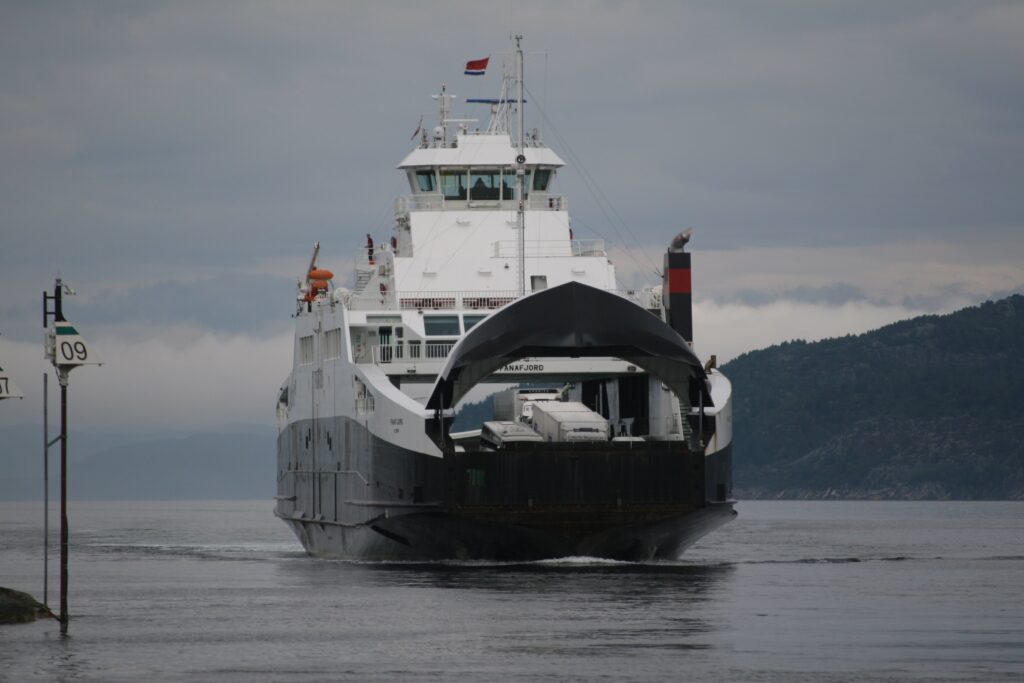
After the MV Holiday Island burned last year, PEI has been borrowing a ferry from Quebec to provide a second vessel on the Caribou – Wood Islands service. In August, the federal government announced that they will be purchasing the Norwegian ferry MV Fanafjord as a replacement for the MV Holiday Island. This will allow the service to continue with two dedicated vessels starting in 2024 and until the Holiday Island replacement vessel is built and delivered, which won’t be earlier than 2028.
CHIGNECTO ISTHMUS – SQUABBLING OVER FUNDING CONTINUES
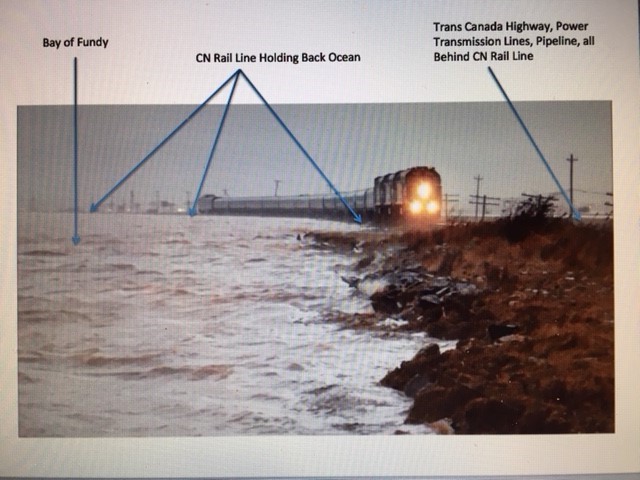
Extreme weather events in the region this summer once again highlighted concerns about the future of the Chignecto Isthmus, and in particular, the critical road and rail corridors that cross between New Brunswick and Nova Scotia at this point. The federal government has indicated they’ll support the project, but are pointing to the need for the provinces to step in: https://www.transportaction.ca/regions/atlantic/canada-ready-to-fund-chignecto-isthmus-protection-if-provinces-match/
The provinces haven’t been on board. The latest iteration of this story has New Brunswick’s senate pushing for the federal government to shoulder the entire cost: https://www.cbc.ca/news/canada/new-brunswick/chignecto-isthmus-senate-bill-1.6971212
Meanwhile, as the respective parties bicker, the isthmus remains vulnerable and major work to protect it for the future continues to be put off.
HALIFAX TRANSIT – NEXT ROUND OF SERVICE CHANGES IS MORE POSITIVE, BUT ELECTRONIC FARE PAYMENT DELAYED AGAIN
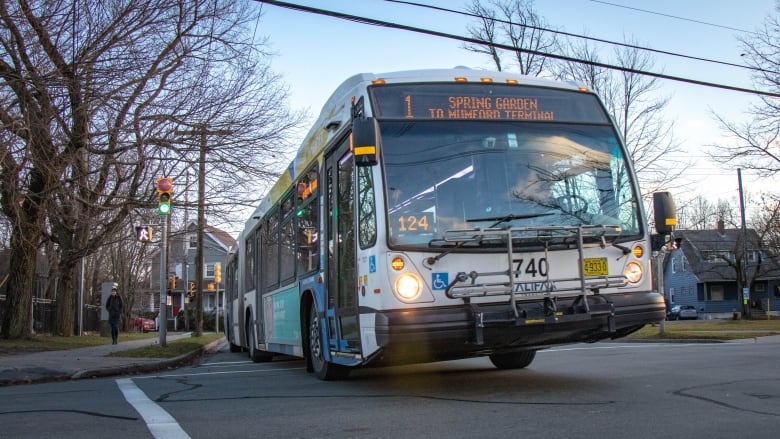
Halifax Transit has announced their next round of service changes, coming November 20, and after a series of scale backs to routes due to shortages of drivers, it seems recruitment and retention efforts are finally starting to bear some positive fruit. The new changes include several added and adjusted routes, as well as the return of many departures that were previously cancelled due to low driver availability.
https://www.halifax.ca/transportation/halifax-transit/service-adjustments
In less positive news, the long awaited roll out of some form of electronic fare payment for Halifax Transit has been delayed once again, with no clear timeline in sight: https://www.cbc.ca/news/canada/nova-scotia/halifax-transit-s-electronic-ticket-system-delayed-again-1.6946752
TRANSIT SYSTEMS AROUND THE REGION SEE CONTINUED PASSENGER GROWTH, PILOT NEW INITIATIVES
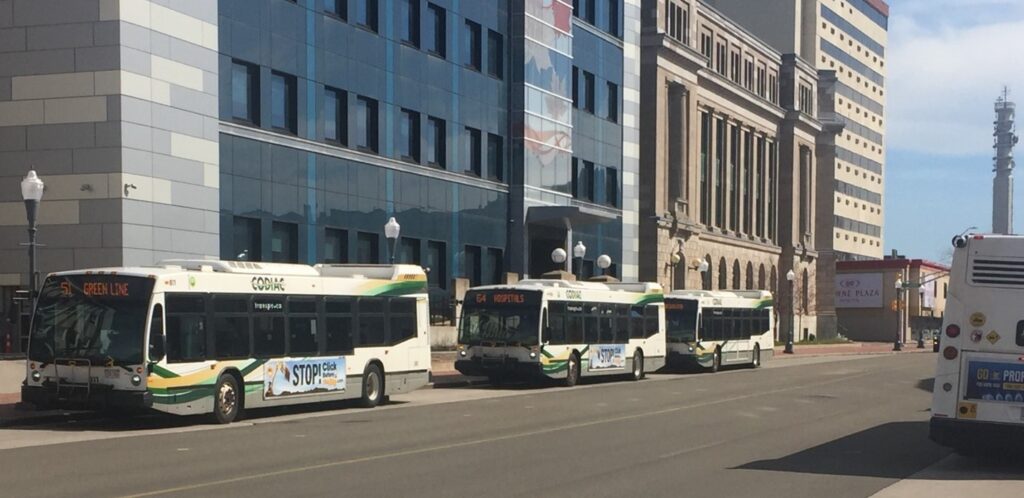
Municipal transit systems throughout the Maritimes have been continuing to see growth in passenger numbers, due to a combination of returns to pre-pandemic commuting patterns, population growth, and perhaps some shift to transit with increasing fuel prices.
St. John’s Metrobus has been struggling to keep up: https://www.cbc.ca/amp/1.6971117
Cape Breton Transit is adding new routes, as a boom in international students in Sydney drives high demand: https://www.cbc.ca/news/canada/nova-scotia/expanded-transit-services-coming-to-cape-breton-1.6948086
Codiac Transpo ridership is up considerably over pre-pandemic levels: https://globalnews.ca/news/9726264/moncton-codiac-transpo-public-transit-increase/
Saint John continues to experiment with electric on-demand buses: https://www.cbc.ca/news/canada/new-brunswick/electric-bus-on-demand-service-1.6946154
Fredericton could be closer to seeing Sunday service, with a new collective agreement with transit employees: https://www.cbc.ca/news/canada/new-brunswick/fredericton-transit-sunday-bus-transit-1.6898574
In PEI, the provincial and federal governments announced investments to electrify Charlottetown’s bus fleet: https://www.princeedwardisland.ca/en/news/the-governments-of-canada-and-prince-edward-island-invest-in-the-expansion-and-electrification
WE NEED YOUR HELP! CALL FOR SUBMISSIONS
We at TAA feel that these news updates are a useful way to keep our members and supporters updated on important transportation news in the region, and we’ve heard from folks who enjoy reading and following along. Unfortunately, this work is time consuming, and as an all-volunteer organization we are often stretched for bandwidth to keep these going, while also trying to focus on our core advocacy work.
We can always use help with this work. Do you have a particular story you’re interested in and following closely? Can you write up a short description of the issue, an update on developments, or some local perspective on what’s happening? As you can see from past issues, this doesn’t have to be lengthy or in-depth, but it always helps to have a bit of perspective from someone who has been following the issue. This doesn’t have to be a regular recurring contribution either – anything you can contribute in a given month is welcome!
We also have a publication for our membership, The Bulletin, which is focused more on longer-form content, analysis, and opinion pieces. We’re also always interested in submissions for this publications. If you’re interested, have a look at some recent past publications for ideas about what that content looks like, and please reach out if you have something you’d like to contribute.
If you have ideas for stories for either this newsletter or The Bulletin, feel free to reach out any time. You can email your stories, ideas, and any other feedback to atlantic@transportaction.ca
We are also always looking for volunteers to support our advocacy work, and to potentially join our board of directors. If that’s something you’d be interested in and feel you could contribute to, please let us know.
